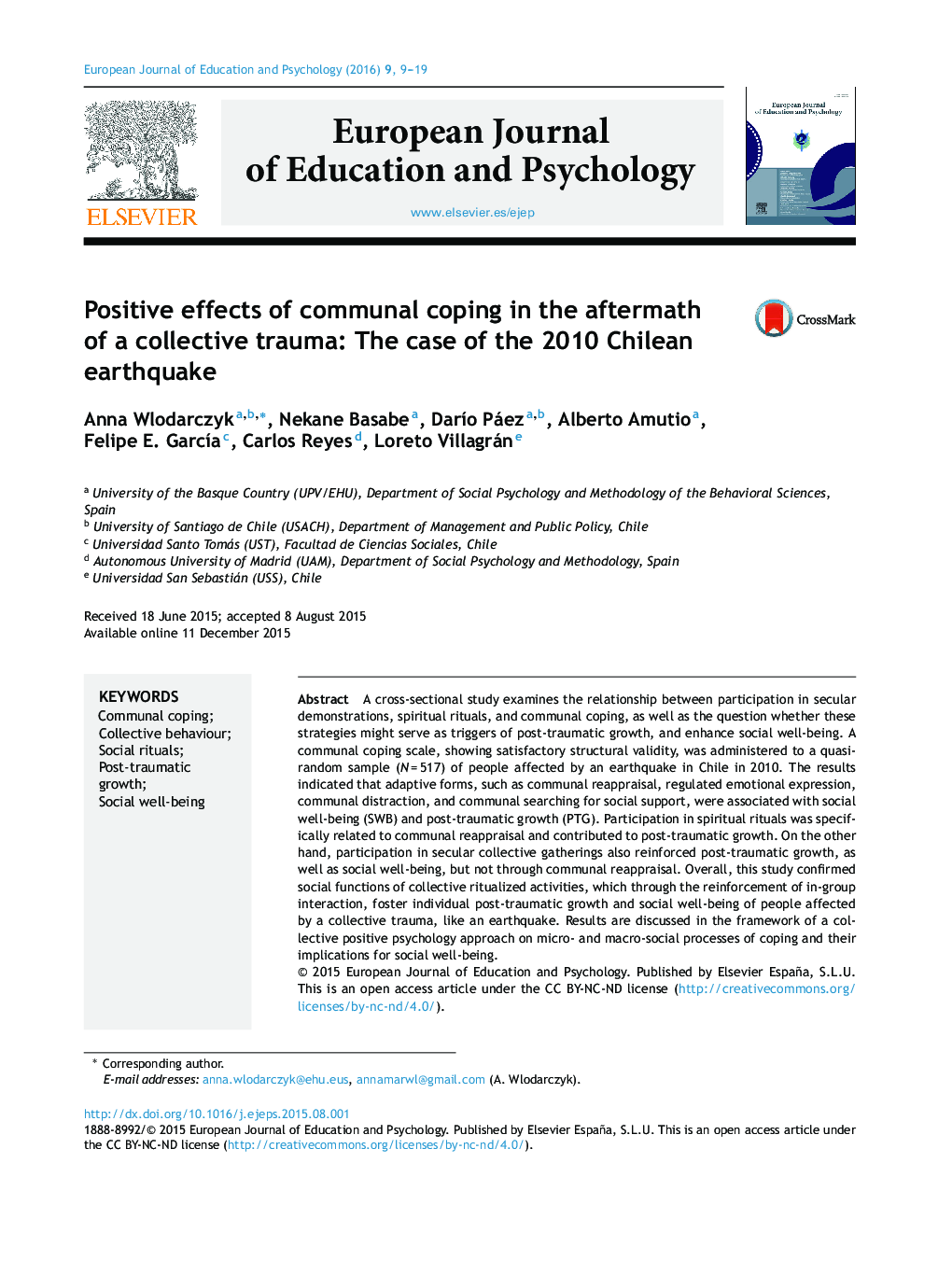| کد مقاله | کد نشریه | سال انتشار | مقاله انگلیسی | نسخه تمام متن |
|---|---|---|---|---|
| 318642 | 1432665 | 2016 | 11 صفحه PDF | دانلود رایگان |
A cross-sectional study examines the relationship between participation in secular demonstrations, spiritual rituals, and communal coping, as well as the question whether these strategies might serve as triggers of post-traumatic growth, and enhance social well-being. A communal coping scale, showing satisfactory structural validity, was administered to a quasi-random sample (N = 517) of people affected by an earthquake in Chile in 2010. The results indicated that adaptive forms, such as communal reappraisal, regulated emotional expression, communal distraction, and communal searching for social support, were associated with social well-being (SWB) and post-traumatic growth (PTG). Participation in spiritual rituals was specifically related to communal reappraisal and contributed to post-traumatic growth. On the other hand, participation in secular collective gatherings also reinforced post-traumatic growth, as well as social well-being, but not through communal reappraisal. Overall, this study confirmed social functions of collective ritualized activities, which through the reinforcement of in-group interaction, foster individual post-traumatic growth and social well-being of people affected by a collective trauma, like an earthquake. Results are discussed in the framework of a collective positive psychology approach on micro- and macro-social processes of coping and their implications for social well-being.
ResumenEste estudio transversal examinó las relaciones entre la participación en rituales seculares, rituales religiosos y las estrategias de afrontamiento comunal. Además se evaluó el papel de estas respuestas colectivas como potenciadores del crecimiento postraumático y del bienestar social. Una escala de afrontamiento comunal fue administrada a una muestra cuasi-aleatoria (N = 517) de personas afectadas por el terremoto en Chile en 2010. Los resultados indicaron que las formas adaptativas de afrontamiento comunal, tales como la reevaluación, la expresión emocional regulada, la distracción y la búsqueda de apoyo social se asociaron al bienestar social y al crecimiento postraumático. Se constató que la participación en rituales también reforzó el crecimiento postraumático y el bienestar social, de una manera directa en el caso de rituales seculares, y a través de la reevaluación comunal en el caso de rituales religiosos. Globalmente, los resultados confirmaron las funciones sociales de las actividades colectivas ritualizadas, las cuales mediante el refuerzo de las interacciones entre los miembros de los grupos o comunidades aumentan el crecimiento postraumático y el bienestar social de los afectados por un trauma colectivo como un terremoto. Los resultados se discuten desde la perspectiva de la psicología positiva colectiva, acentuando el papel de los procesos sociales de afrontamiento en el bienestar social.
Journal: European Journal of Education and Psychology - Volume 9, Issue 1, June 2016, Pages 9–19
